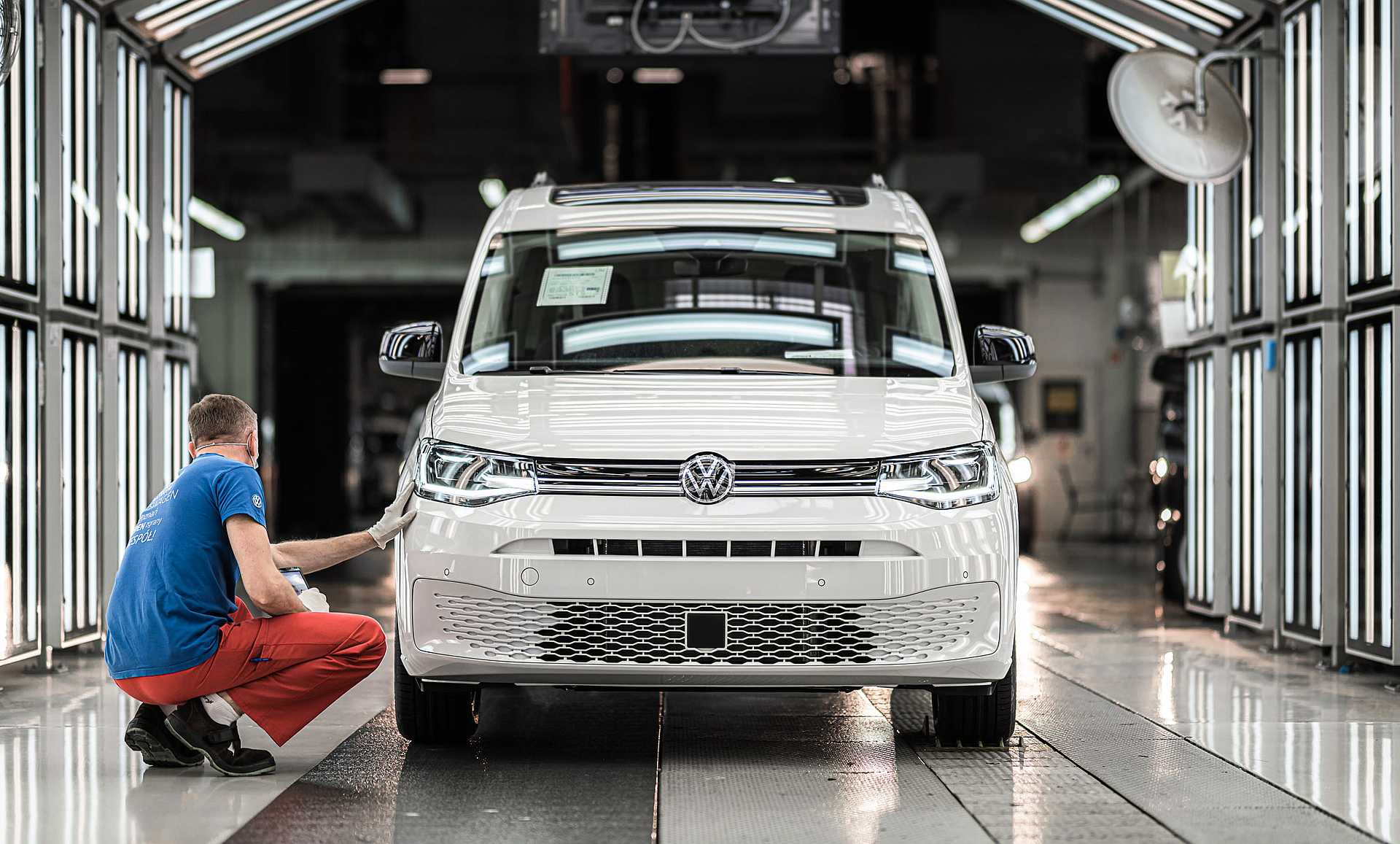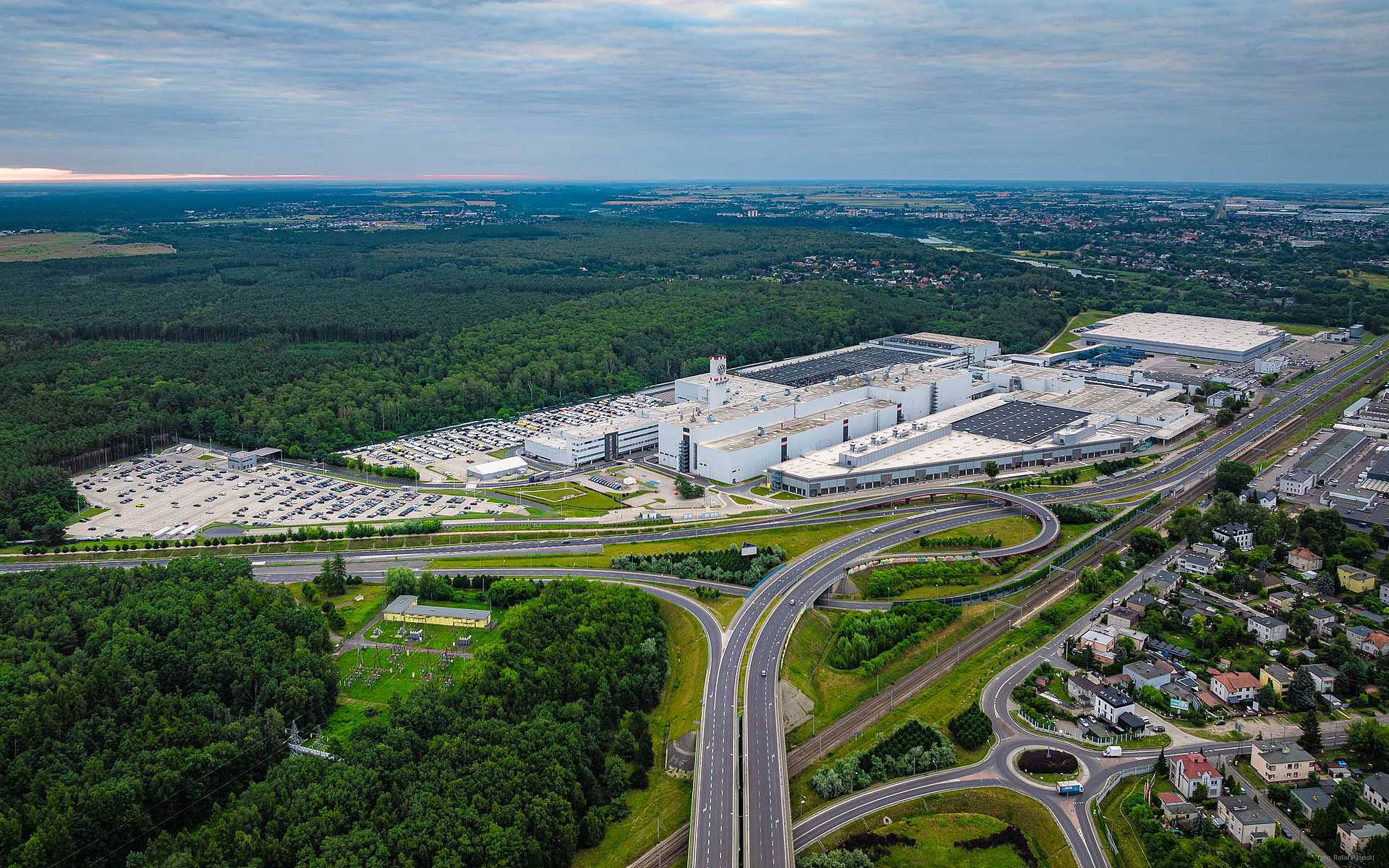Statement of the jury
The OEM Award goes to Poland this year, specifically to the Volkswagen Commercial Vehicles plant in Poznań Antoninek, the largest of the four plants in the Volkswagen Poznań production network. Here, 5,500 employees work in the body shop, paint shop, and assembly department to manufacture the Caddy and, until June 2024, the T6.1 on the same assembly line daily.
The plant distinguishes itself with a reliable production system, ensuring high system availability and continuous flow. The factory layout, with its minimal decoupling spaces between operations, particularly between the paint shop and assembly (only 20 buffer spaces), demands a stable production. This is a significant challenge as the last major investments were made approximately 20 years ago. The paint shop stands out for its strict adherence to tidiness and cleanliness, robust maintenance strategies, and constant innovation to increase efficiency and reduce environmental impact.
Machine data acquisition is well-advanced in the body shop, with malfunctions automatically recorded and analyzed. This analysis is integrated into digital shop floor management. Smartwatches are used to record response times to faults, and extensive analysis dashboards have been implemented for continuous improvement and preventive maintenance. Poznań impresses with the large-scale use of cost-effective solutions like Power BI.
The Jury was convinced by the handling of internal quality: Poznań sets standards in the commercial vehicle sector for robust quality processes and control loops in production, supported by end-to-end digitalisation solutions. One example of this is the AI-supported surface inspection system used in the paint shop, which recognises every paint defect, assesses its severity and recommends the next steps to the employee.
Another example for Good Practice can be found in quality assurance is in the assembly, where mistakes are registered at the stations and the rework is initiated according to the polluter pays principle. In practice, this means that rework that cannot be carried out by team leaders is taken over by a specialist, the ‘Flying Doctor’, in a later cycle section. With the help of tablets, this group of specialists can track the faulty vehicles and defects in real time in order to carry out the rework at a suitable location and before the last quality gate.
The continuous improvement follows the Volkswagen Group's familiar CIP cascade with waves. In Poznań this CIP approach, with a detailed annual plan and consistent tracking using a degree of rigour logic, is very stringent. For the launch of the new Caddy, 3P workshops were held in advance to enable a steep start-up curve on the one hand and to optimise and standardise the processes before the SOP on the other. Another important result of the 3P workshops was the complete elimination of ergonomically critical processes.
Another reason for the honouring is the further development of the company suggestion scheme with the ‘doskonalMY’ portal, which enables all employees to rate colleagues' ideas with ’likes’. At the end of the annual cycle, the best and most effective optimisation ideas are honoured. This creates a high level of awareness for the initiative, encourages employees to participate in the continuous improvement process and supports the principle of Yokoten - the horizontal dissemination of best practices and exchange of knowledge and experience within the site, but also within the Volkswagen Group with the aim of improving efficiency and quality.
The evaluation team particularly liked the professional room for its excellent visualization, high degree of flexibility, and practical relevance. The professional room is used for problem-solving and training assembly line employees by simulating individual cycles and processes, learning basic skills, and raising employees' quality awareness.
Overall, the Poznań Antoninek plant impresses with its strong lean system, purposeful and understandable digitalization, and the high level of commitment of all employees.
The plant
Volkswagen Poznań consists of four production sites, which produce commercial vehicles and components. On the 26th November of 1993 the Volkswagen Group and the agricultural machinery manufacturer Polmo Agricultural Car Factory founded the company Volkswagen Poznań (VWP). Initially, 48 employees assembled the fourth generation transporter in the so called ‘Semi-Knocked-Down‘- procedure (SKD). In 1996, VWP became a wholly owned subsidiary of Volkswagen AG and the site grew steadily. After an extensive factory expansion between 2001 and 2003, the production of the Volkswagen Caddy began on one line with the transporter, the T-series was now in the sixth generation. In 2016, the plant in Września opened up, in which the Volkswagen Crafter and the MAN TGE were produced in series. With four modern production sites, over 9.500 employees and 249.743 manufactured vehicles in 2023, Volkswagen Poznań sets an example in the automotive world. Additionally, Volkswagen Poznań offers specialised vehicles based of models like the Caddy, Caddy Maxi, Transporter T6.1 and the Crafter, which are tailored to individual and institutional needs.
Congress organisation
phone +49 89 44 388 99 22
lean.award(at)agamus.com

